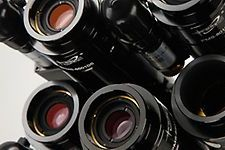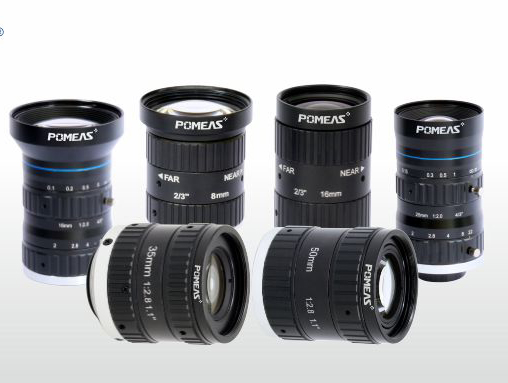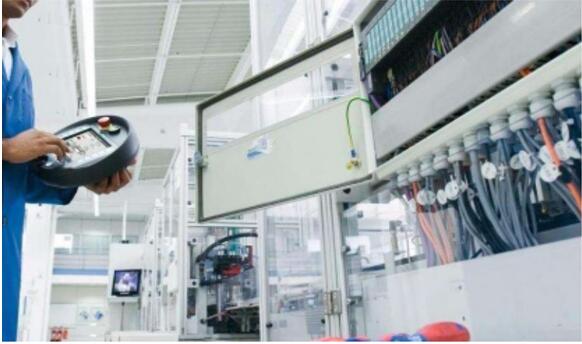Is the image quality of industrial lenses superior to normal lenses?
In the field of optics, the image quality of the lens is directly related to its performance in various application scenarios. Whether it is used to record the life of the photographic camera, or on the high precision requirements of industrial testing and production, the lens plays a crucial role.


Imaging Principles and Fundamentals
The imaging principle of the lens is based on the refraction and focusing of light, which is converged on the imaging plane through the lens to form a clear image. Although ordinary lenses and industrial lenses follow this basic principle, there are significant differences in the specific design and application.


Ordinary lenses, such as common civilian photographic lenses, are mainly oriented to the mass consumer market, aiming to meet people's daily needs for taking photos, recording videos, and so on. Their design focuses on balancing cost, portability and a certain image quality to adapt to diverse shooting scenarios, such as landscapes, portraits, daily recordings, etc.


Industrial lenses, on the other hand, are designed to meet the strict requirements of industrial production, testing, scientific research and other specialized fields. These areas often have extremely high standards for imaging accuracy, stability, reliability and other aspects, so industrial lenses in the design and manufacturing process, pay more attention to the control of details and the ultimate pursuit of performance.
Optical structure and imaging quality
I. Lens Materials and Processes
Industrial lenses usually use more advanced optical materials, such as special optical glass or high-performance optical crystals. These materials have lower dispersion coefficient and higher refractive index uniformity, which can effectively reduce chromatic aberration and aberration generated when light propagates in the lens, thus improving the clarity and color reproduction of imaging. POMEAS industrial lenses are strictly controlled in the selection of lens materials, and select high-quality materials from international advanced optical material suppliers to ensure that the optical performance of the lenses reaches the leading level in the industry.
In contrast, in order to control the cost of ordinary lenses, the choice of lens materials is relatively conventional, and it is difficult to reduce chromatic aberration and aberration to the level of industrial lenses. Although in the general shooting scene, this difference is not obvious, but in the image quality requirements of the demanding professional field, it will be exposed to deficiencies.
II. Lens combination and design
The optical structure of industrial lenses is more complex, usually using a combination of multiple groups of lenses, through the carefully designed lens curvature, thickness and spacing, precise control and correction of light. For example, in order to correct spherical aberration, coma aberration and other aberrations, industrial lenses use aspherical lenses, which have a curved surface shape that allows light to converge more evenly on the imaging surface, dramatically improving imaging quality. POMEAS invests a lot of manpower and resources in the design and development of industrial lenses, using advanced optical design software and simulation technology to optimize the lens combinations over and over again, to ensure that each lens can provide customers with excellent imaging results.
Although ordinary lenses also use multiple lens combinations, they are designed to focus on meeting the common shooting needs of the general public, with a relatively limited degree of correction for aberration, making it difficult to play a role in high-precision industrial inspection and other scenarios.
Manufacturing Processes and Quality Control
I. Precision Manufacturing
The manufacturing process of industrial lenses requires extreme precision and stability. From the grinding and polishing of lenses to the assembly and debugging of lenses, every step of the process strictly follows the precision process and quality standards. POMEAS has advanced production equipment and a professional technical team. In the lens grinding process, we use ultra-precision grinding equipment, which can control the surface precision of the lens to the nanometer level, ensuring the optical performance of the lens reaches the best state. In the lens assembly process, the use of high-precision automated assembly equipment and strict quality testing process to ensure the consistency and stability of the quality of each lens.
Although the manufacturing process of ordinary lenses is also progressing, due to cost and market positioning limitations, there is a certain gap between the manufacturing precision and quality control and industrial lenses.
II. Quality Inspection
Industrial lenses need to undergo rigorous quality testing before leaving the factory, including imaging resolution test, aberration test, color reproduction test and many other indicators. Only lenses that have passed all the testing programs can enter the market to ensure that each industrial lens can meet the needs of customers for high quality imaging. POMEAS has established a perfect quality inspection system and introduced international advanced testing equipment to conduct comprehensive and detailed testing on each batch of lenses to ensure the reliability of product quality.
The quality inspection standard of common lenses is relatively low, mainly focusing on the performance of lenses in common shooting scenarios, which is difficult to meet the strict requirements for imaging quality in the industrial field.
Product recommendation
TECHNICAL SOLUTION
MORE+You may also be interested in the following information
FREE CONSULTING SERVICE
Let’s help you to find the right solution for your project!


 ASK POMEAS
ASK POMEAS  PRICE INQUIRY
PRICE INQUIRY  REQUEST DEMO/TEST
REQUEST DEMO/TEST  FREE TRIAL UNIT
FREE TRIAL UNIT  ACCURATE SELECTION
ACCURATE SELECTION  ADDRESS
ADDRESS Tel:+ 86-0769-2266 0867
Tel:+ 86-0769-2266 0867 Fax:+ 86-0769-2266 0867
Fax:+ 86-0769-2266 0867 E-mail:marketing@pomeas.com
E-mail:marketing@pomeas.com
